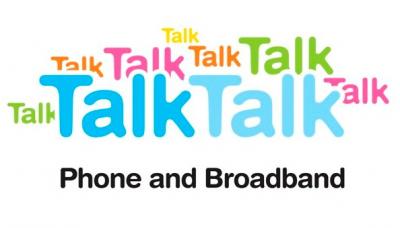BT and TalkTalk Launch Legal Challenge To Digital Act

The companies want the coalition to overturn the rules but the new government is sticking by the controversial act
BT and TalkTalk have backed up previous threats to take legal action against the Digital Economy Act by calling for a judicial review by the High Court.
The service providers announced this week that they are launching a legal challenge against the recently enacted law which was rushed through parliament in the closing days of the previous government. The operators say the Act’s measures to curb online copyright infringement did not receive sufficient scrutiny when the bill was passing through Parliament.
The Digital Economy Act was passed into law in April after it received Royal Assent from the Queen. BT and TalkTalk have been long-term critics of the legislation which would force service providers to effectively “police” customers who may be downloading copyrighted content.
Three-Strikes And Out

The Act includes provisions allowing the internet connection of users to be suspended if they are found to be persistently downloading copyrighted content. But a last minute amendment to the Act requires additional legislation to be passed before terminations can be carried out.
The internet cut-off plans would only apply to large ISPs with more than 400,000 users – which includes BT and TalkTalk. Under the rules, the ISPs would be forced to track the activity of known copyright infringers and pass those details onto to copyright owners so they could pursue suspensions through the courts.
BT Retail chief executive Gavin Patterson said that it was disappointing to have to take action against the Act but the companies felt they had no choice. “We have to do this for our customers who otherwise run the risk of being treated unfairly,” he said. “Our dispute is not with the current Government but with the previous administration which pushed this through without due process. We need clarity about whether this legislation is compatible with important EU laws.”
BT has been a long-standing critic of the law’s measures on fil-sharing, which it says would also threaten public Wi-Fi.
TalkTalk Group chairman Charles Dunstone reiterated previous criticism, and said the The Digital Economy Act’s measures would cost the UK hundreds of millions of pounds and wouldn’t work. “Innocent broadband customers will suffer and citizens will have their privacy invaded. We think the previous Government’s rushed approach resulted in flawed legislation,” he said. “That’s why we need a Judicial Review by the High Court as quickly as possible before lots of money is spent on implementation.”
But although the Digitial Economy Act was passed by the previous government, and opposed by senior Liberal Democrats during the election, the Conservative / L;iberal Democrat coalition has responded to the legal challenge from BT and TalkTalk by claiming that it had no plans to change the rules.
“The Digital Economy Act sets out to protect our creative economy from the continued threat of online copyright infringement, which industry estimates costs the creative industries, including creators, £400m per year,” read a statement from the Department of Business, Innovation and Skills,” the BBC reported. “We believe measures are consistent with EU legislation and that there are enough safeguards in place to protect the rights of consumers and ISPs and will continue to work on implementing them.”
Ofcom Code By 2011
In May regulator Ofcom has published a draft code of practice for tackling copyright infringement over the Internet – based on the Digital Economy Act – including a ‘three strikes’ rule, which could see persistent infringers being taken to court for illegal file-sharing. Ofcom said the code should come into force in early 2011.
But while the likes of BT and TalkTalk have objected to the cut-off rules, Virgin Media has publicly stated that it is trialing new technology from Detica that will allow it to monitor file-sharing over the Internet.
Campaigners against the act welcomed the high profile challenge. “This is exactly what we and 20,000 supporters warned their MPs about,” said Jim Killock, executive director of the Open Rights Group. “The Act was rushed through and is already working extremely badly. It threatens basic rights and large chunks need to be repealed.”